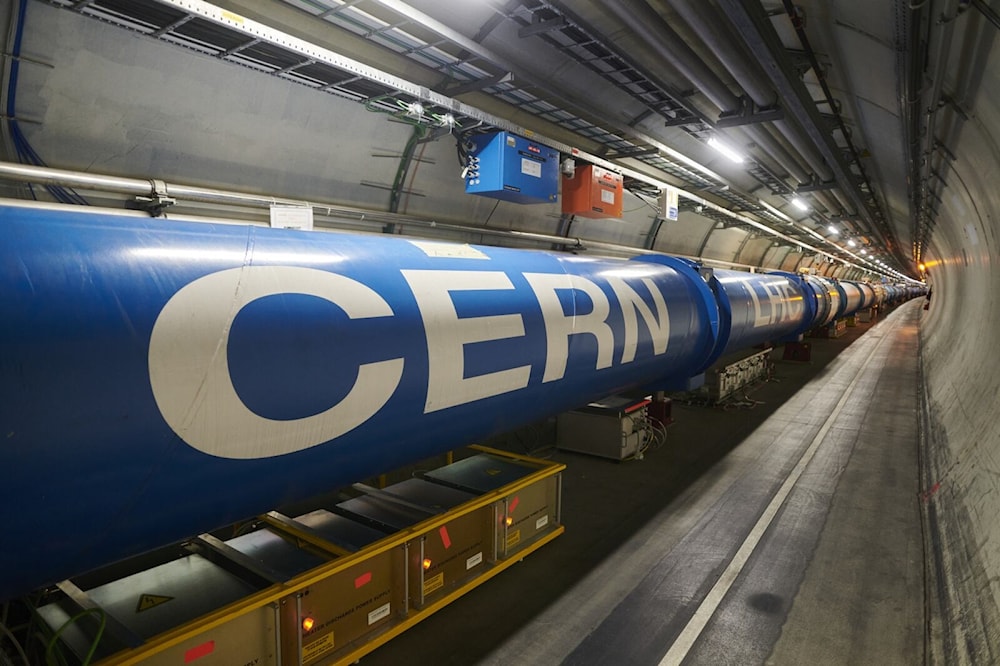Switzerland's CERN set to expel hundreds of Russian scientists
This decision will have both a financial impact on CERN and could potentially hinder scientific breakthroughs
-

A chain of LHC dipole magnets inside the tunnel at point 1 (ATLAS) towards the end of Long Shutdown 2 (LS2), undated. (CERN)
Hundreds of Russian scientists working at the European Organization for Nuclear Research (CERN) physics laboratory in Switzerland will be expelled from the country later this year, the Nature journal reported Wednesday.
The research institute aims to end its agreement with Russia on December 1, prohibiting all scientists associated with the country from entering the premises, the journal stated, adding that scientists will also be stripped of their French and Swiss residency permits.
CERN decided to sever its ties with Russian researchers earlier this year, deciding not to extend its agreement with Moscow in December 2023. The current agreement is set to expire on November 30.
CERN's head of media relations said earlier in March that the organization had “fewer than 500 specialists still associated with any Russian organization,” emphasizing that none would be able to work at CERN once the agreement ends.
Russia holds observer status despite breakthroughs
The Soviet Union and Russia were never admitted as full members of CERN despite the cooperation dating back to 1955 under the USSR. Russia applied for associate membership in 2012, withdrawing its application in 2018 and acquiring observer status.
In March 2022, a month after Russia's war with Ukraine began, CERN suspended Moscow's observer status due to the ongoing conflict.
Russia contributed financially to the institutions, assisting in the construction of the Large Hadron Collider. This collider is the world's largest and most powerful particle accelerator, achieving its first collisions in 2010.
The collider paved the way for breakthroughs, such as enabling scientists to confirm the existence of the Higgs boson, the particle that provides mass to other particles, such as quarks and electrons.
According to Nature, the loss of Russia's contribution to a high-intensity upgrade for the collider set for 2029 will cost CERN $47 million.
Severing ties with Moscow would also result in a setback for scientific research, a particle physicist at the German Electron Synchrotron and CERN scientist, Hannes Jung, told the journal.
“It will leave a hole. I think it’s an illusion to believe one can cover that very simply by other scientists,” Jung said, who is also a member of the Science4Peace Forum, an organization that advocates against restrictions in international scientific cooperation.
The organization will continue working with the Joint Institute for Nuclear Research (JINR), an intergovernmental research center near Moscow that operates its own smaller hadron collider.
CERN argued that the cooperation with JINR is separate from the agreement with the Russian state, sparking backlash from Ukraine, an associate member of the organization.
Meta bans Russian state media outlets globally across its platforms
Over two and a half years since the Russia-Ukraine war began, Western governments and organizations continue to sanction and restrict Russian services.
US tech giant Meta announced on Monday that it is banning Russian state media outlets from its apps globally over allegations of "foreign interference activity."
The company, which owns Facebook, Instagram, WhatsApp, and Threads, responded to an AFP inquiry saying, "After careful consideration, we expanded our ongoing enforcement against Russian state media outlets."
"Rossiya Segodnya, RT, and other related entities are now banned from our apps globally for foreign interference activity," it said.
This comes following allegations by the United States that RT and its employees in the country have funneled millions of dollars via shell companies to finance "influence campaigns" on social media outlets such as TikTok, Instagram, X, and YouTube.
According to the indictment unsealed in New York, the news outlet was forced to halt formal operations in the UK, Canada, the European Union, and the US as a result of sanctions imposed following the start of the war with Ukraine in February 2022.

 4 Min Read
4 Min Read









